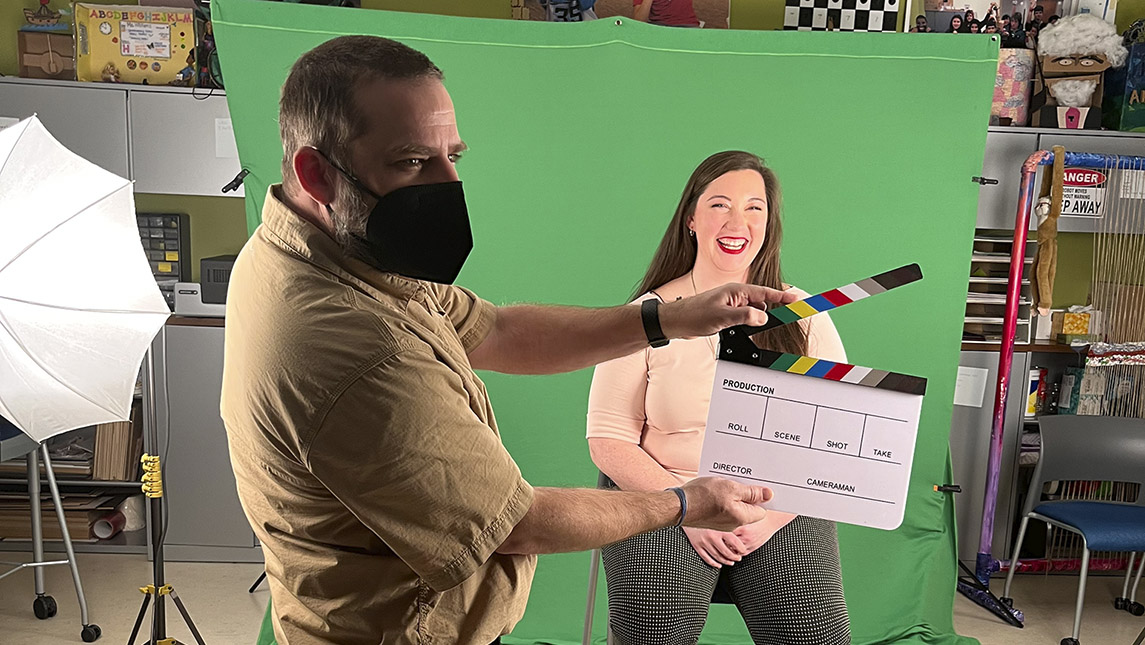Trauma-based care is a topic that has become ubiquitous within the mental health community in response to the many stressors people endure today – the pandemic and myriad other inflictions – isolation, fear, poverty, health problems, crime, accidents, and abuse.
Counselors, psychologists, therapists, and other professionals such as educators are struggling to help the vast numbers of traumatized people in their care. A new certificate program offered by the Department of Counseling and Educational Development at UNC Greensboro aims to equip mental health professionals with the tools they need to identify and treat trauma.
“It’s helping the helpers,” says Anita Faulkner, director for North Carolina Academy for Stress, Trauma, and Resilience (NCA-STAR). NCA-STAR’s mission is to inform as many people as possible about toxic stress and helpful trauma information.
The new certificate program was designed using both research and practice-based knowledge by experts with years of experience in trauma-based care. This virtual program is interactive and module-based using videos, readings, and discussions. Participants have a year from the time of registration to complete all of the course hours.
The program is geared toward mental health professionals, counselors, school counselors, psychologists, marriage counselors, and therapists. Participating in the program will strengthen their foundational understanding of trauma and increase their knowledge of trauma-based treatments. “It will help them operate in a trauma-informed manner,” Faulkner says.
“Traditionally within the mental health field, trauma had been thought of as an area of specialization,” says Dr. Rebecca Mathews, clinical assistant professor at UNCG and Faulkner’s collaborator on the development of the certificate program. “But we have found that all of us need to know how to provide trauma-informed care. It should be a universal protocol,” Mathews says. The creators of the new certificate want to support their colleagues in this area by providing the online training.
“My hope is people will walk away with a stronger foundation and knowledge for what it looks like when people have experienced trauma, what it looks like, how it affects their relationships and their ability to maintain employment and what treatment could work,” Mathews says. “They should walk away better able to identify trauma in others and themselves, and to develop systems to keep themselves and others safe.”
“We also need to promote resilience,” Faulkner says. “In mental health counseling, so much trauma happens to the counselors.” Mental health professionals take an oath that says they will not practice if they are not in good mental health themselves, so it is imperative that they use strategies to protect themselves from trauma during the course of their work, she says. The program focuses on ways to do that.
“In every aspect, this has really been an intentional modeling of trauma-informed care,” Faulkner says.
Mathews explains that participants in the program will come away with strategies and a skillset that will allow them to recognize when someone has been a victim of trauma so they can address it and avoid re-traumatization of their clients.
Another major goal of educating those in the field about trauma is to develop a common language that can be used by mental health professionals, she says.
“My hope is this will create ambassadors who take the knowledge and share it,” Faulkner adds. “We want to create a whole new culture in trauma training.”
After completing the program, professionals will gain 16 credit hours toward their required professional development training, as well as a certification badge they can add to their email signature.
In 2023, the team hopes to launch versions of the program tailored to educators and medical professionals.
Trauma Informed Professional Practice Certificate
Registration Open for Fall 2022
Written by Jane Bornhorst for Manning Words, Inc.



